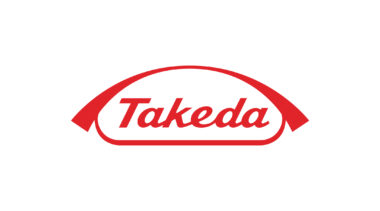
With Australians heading to the polls in a matter of weeks, Dementia Australia is issuing a stark warning: Australians impacted by dementia cannot wait. With dementia set to soon become the nation's leading cause of death, Dementia Australia is urgently calling on all parties, independents and candidates to commit to immediate action.
Dementia Australia CEO Professor Tanya Buchanan said there are an estimated 433,300 Australians living with dementia and 29,000 people living with younger onset dementia. Two thirds of Australians with dementia live in our community and around 1.7 million people are involved in their care. Dementia is a progressive brain condition and there is currently no cure.
“Dementia cannot be ignored during this election. The situation is already critical with our hospitals, acute care and aged care systems all unable to meet demand. Two in three people living with dementia live in the community and there are long waits to receive home care packages,” Professor Buchanan said.
“People living with dementia wait longer in hospitals to get access to residential aged care than someone who doesn't have dementia. The length of stay in hospital is five times longer than for someone without dementia.
“Without a significant intervention the number of Australians who will be living with dementia is set to double in the next 30 years. We simply cannot afford to wait, the 48th Parliament must be the one to commit to action,” Professor Buchanan said.
Dementia affects Australians of all ages and is the public health, disability and aged care challenge facing Australia and must be top of the agenda for all political parties, independents and candidates.
Dementia Australia is calling for federal government commitments to:
1. Launch a national conversation on dementia to raise awareness of the condition and to promote brain health at all ages;
2. Establish a team of dementia specialist care coordinators within Dementia Australia to deliver nationally consistent support and navigation to people living with dementia, their families and carers; and
3. Build the capability of the workforce to provide care and support for people living with dementia.
“The first priority is especially pressing. We cannot change getting older, genetics or family history, however scientific research shows that looking after our brain health can make a big difference to reducing or delaying the risk of developing dementia. Dementia is not a normal part of ageing and in the absence of a cure, we must ensure we take all steps possible to promote good brain health throughout our lives in order to reduce the risk of dementia,” Professor Buchanan said.
“Dementia prevalence data is available for every Federal electorate – for 2025 and with projections to 2054. We recommend all parties, independents and candidates use this data to help them understand why dementia must be a policy priority nationally and for their electorates.”
Dementia Australia Advisory Committee Chair Ann Pietsch, who lives with Lewy body dementia, reiterated the importance of all political parties and candidates keeping a focus on dementia.
“Raising awareness and educating people about dementia is of paramount importance for all Australians – there is still much to be done,” Ms Pietsch said.
To assist people living with dementia, their families and carers with information regarding support to vote for this election, Dementia Australia is hosting a series of information sessions. Click here for details on the sessions and how to join. Visit our website for more information on voting with dementia and a pre-recorded video of the information session.
If someone living with dementia requires assistance at a voting centre or when in contact with the Australian Electoral Commission, please call the National Dementia Helpline on 1800 100 500. The National Dementia Helpline is a free call and operates 24 hours a day, 7 days a week, 365 days a year.
-Ends-
Dementia Australia is the source of trusted information, education and services for the estimated more than 433,300 Australians living with dementia, and the more than 1.7 million people involved in their care. We advocate for positive change and support vital research. We are here to support people impacted by dementia, and to enable them to live as well as possible. No matter how you are impacted by dementia or who you are, we are here for you.
For support, please contact the National Dementia Helpline on 1800 100 500. An interpreter service is available. The National Dementia Helpline is funded by the Australian Government. People looking for information can also visit dementia.org.au
Media contacts: David Gear, Media and Communications Advisor, 0435 515 221, [email protected]
When talking or writing about dementia please refer to Dementia-Friendly Language Guidelines.
Note to Editors:
We request, where possible, details for the National Dementia Helpline 1800 100 500 appear alongside news stories about dementia, as these stories often prompt questions or concerns:
If this story has prompted any questions or concerns, please call the National Dementia Helpline 1800 100 500 (24 hours, 7 days a week) or visit dementia.org.au.


